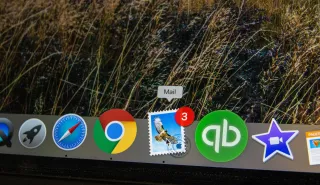See What The Experts Say
Be a part of the marketing revolution.

8 Common Email Marketing Mistakes and How to Fix Them
Avoid common email marketing mistakes that can hurt your campaign’s success. Learn how to improve personalization, mobile optimization, subject lines, and more to boost engagement and generate better ... ...more
Marketing
September 18, 2024•5 min read

Smart Strategies to Get More Leads for Your Business
Discover smart strategies to generate more leads for your business. From optimizing your website to leveraging social media and SEO, these proven tactics will help you capture and convert more qualifi... ...more
Marketing
September 17, 2024•6 min read

The Cost of Playing the Social Media Game
This comprehensive guide serves as a valuable resource for navigating the dynamic landscape of social media marketing, ensuring that your business remains competitive and successful in the digital age... ...more
Marketing
July 20, 2024•3 min read

A Pathway to Creating a Scalable Business Model
This blog provides a comprehensive look at building a scalable business model, designed to help entrepreneurs and business managers ensure their ventures grow efficiently and sustainably. ...more
Marketing
July 04, 2024•3 min read

Essential Strategies to Propel Your Small Business Toward Success
Discover essential strategies to elevate your small business. From improving operational efficiency to enhancing online visibility and customer engagement, learn how to drive growth and outpace the co... ...more
Marketing
June 28, 2024•3 min read

How to Use High-Quality Referrals to Grow Your Business Rapidly
Discover the strategic importance of high-quality referrals and learn how to cultivate and maximize them for sustainable business growth. This guide provides expert tips on enhancing referral quality,... ...more
Marketing
June 17, 2024•3 min read

Unlocking the $500 Billion Potential in Mobile Marketing
Discover the key strategies to unlock the $500 billion potential in mobile marketing with our comprehensive guide. Learn about mobile advertising, responsive design, personalized marketing, and more t... ...more
Marketing
June 14, 2024•3 min read

SMS Marketing Best Practices for Boosting Sales
Explore key SMS marketing best practices to boost your sales instantly. Engage and convert with effective strategies. ...more
Marketing
June 11, 2024•3 min read

How To Grow A Business While Working A 9-To-5 Job
Discover essential strategies for growing a business while working a full-time job. This comprehensive guide covers time management, financial planning, marketing, and more to help you balance entrepr... ...more
Marketing
June 10, 2024•4 min read

How to Get New Customers Without Ads
Discover innovative strategies to attract new customers without relying on ads with our comprehensive guide from the Legacy Business Partners Event. Dive into expert insights on social media, SEO, con... ...more
Marketing
June 09, 2024•1 min read

Exploring Google's Latest Innovations in AI Advertising
Discover Google's groundbreaking innovations unveiled at Google Marketing Live, including personalized search ads, brand profiles, and immersive shopping experiences. Explore how AI-driven tools are t... ...more
Marketing
June 07, 2024•3 min read

Social Commerce Shopping Trends - Revolutionize Your Buying
Explore how social commerce is revolutionizing shopping. Engage directly with brands on social media for a seamless experience. ...more
Marketing
June 06, 2024•3 min read
Driving Growth, Amplifying Impact

George Owens

Legacy Business Partners are definitely the ones to go with when it comes to growth and marketing for your business. They're completely professional and have innovative and effective marketing strategies.

Kim Wexler

They provided excellent advice, seamless integration between social media and our website, and created campaigns geared towards our targeted audience. We look forward to our continued success with the support of LBP.

James Cart

I recently had the opportunity to receive great marketing advice from Legacy, they were able to breakdown strategies for me to implement to be able to grow my business. I am very thankful to James for all of his help.
Get In Touch
Email: [email protected]
Address
Tri-state Area
Hours
Mon – Fri 9:00am – 6:00pm
Saturday & Sunday – CLOSED
Phone Number:
(732) 527-9282
Not Seeing The Marketing Results That You Expected?
Our mission is to grow your brand in the next 30 days! Fill out the form below and let's build your legacy.
I Consent to Receive SMS Notifications, Alerts Message & data. You can reply STOP to unsubscribe at any time.
Instantly Increase the Efficiency of Your Marketing
Getting noticed in a crowded market is no easy feat... until now!
© 2024 Legacy Business Partners - All Rights Reserved.

